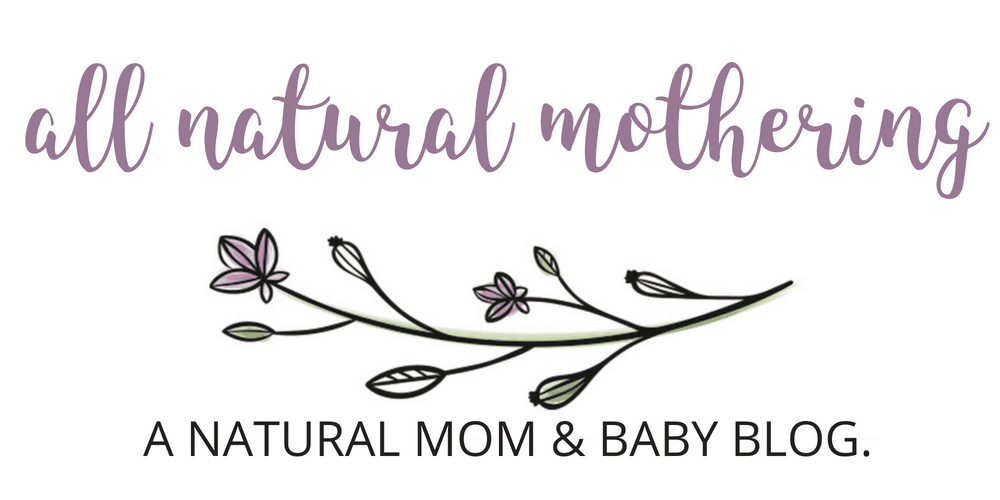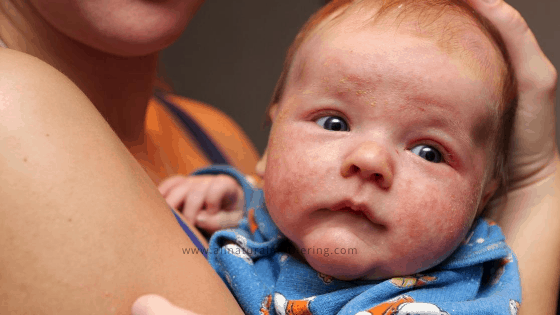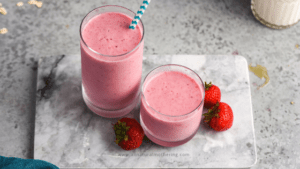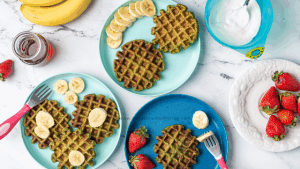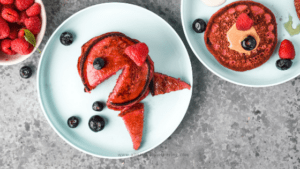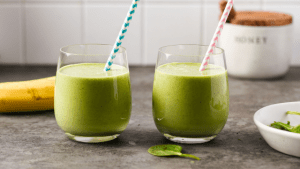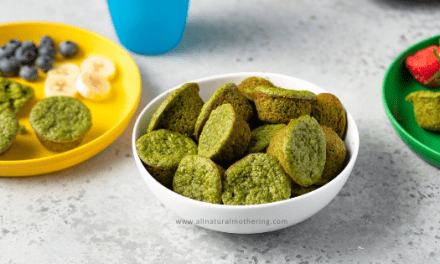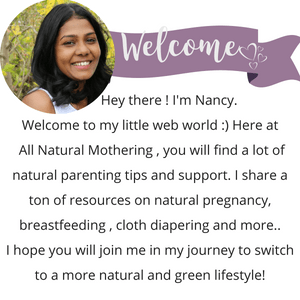Baby eczema, medically known as atopic dermatitis, is a common skin condition that effects an estimated 10% of all children. If your baby is one of them, then you know how uncomfortable this dry, scaly, often itchy skin rash can be for little ones.
Luckily, there’s a lot you can do to help your baby’s eczema flare-ups and relieve their discomfort!
Today, I’m going to share some of the top natural remedies for baby eczema that you can try right away. These include: probiotics, cod liver oil, vitamin D, homeopathic remedies, coconut oil, shea butter, and oatmeal baths. Read on to learn more!
What is Baby Eczema?
Baby eczema is an umbrella term for a number of skin conditions that cause red, itchy and inflamed skin on young children. Atopic dermatitis is the most common and well-known type of eczema, characterized by red, scaly, and itchy patches of skin.
It’s estimated that baby eczema affects more than 10% of all young children, and according to the CDC, cases seem to be on the rise in the US. Interestingly, little ones with food allergies (like cow’s milk) seem to be more likely to suffer from severe eczema. As high as 30% of babies with food allergies have eczema. (source)
Eczema usually appears when babies are between 1 and 6 months old. Typically, it starts on the cheeks. It may continue to spread around the face and then on to the arms and legs. In older children, eczema flare-ups are usually not on the outer surfaces of the limbs, but instead are found in creases such as the backs of the knees, wrists, and elbows.
Is cradle cap a form of eczema?
Technically, cradle cap (seborrheic dermatitis), is a form of eczema that affects nearly 70% of all infants by the time they are three months old. Cradle cap is characterized by crusty, flaky patches on your baby’s scalp.
Unlike classic baby eczema, cradle cap is typically not itchy and does not cause any discomfort to your little one. Usually, cradle cap clears up on its own, but there are some homemade treatments to try if you’d like to try to get rid of it sooner.
Baby eczema symptoms
If you suspect your baby has classic eczema, here’s what you might be seeing:
- Dry, red, scaly patches of skin
- Sensitivity of affected skin
- Raised, very small bumps (filled with pus)
- Weepy looking patches (especially when infected)
- Patches of yellow crust on flare-ups as body tries to heal
Causes of baby eczema
It can be difficult to determine exactly what’s causing your baby’s eczema. It’s a skin condition that some people seem to inherit and is not spread through contact. There does seem to be a higher likelihood of suffering from eczema if a family member also has the condition.
Figuring out what causes your little one to have a flare-up is important to keep their skin comfortable and healthy. Here are some common causes of baby eczema:
- General dry skin: some babies (and adults) have seasonal flare-ups because their skin tends to be drier in the winter. Anytime your little one’s skin is especially dry it may put them at risk for a flare up
- Allergens: anything that your little one is allergic too can result in an eczema flare-up. This includes animal dander, pollen, and foods
- Soaps, lotion, detergents and fragrance: soaps, lotions, and anything with fragrance may cause flare-ups. For babies with eczema prone skin, it’s best to opt for all-natural, unscented, mild products. Ideally, look for something that’s designed for sensitive skin
- Dry Air: not surprisingly, if you live in a dry climate or the air is very dry in your home, your baby may get dry skin which results in a flare-up. Try running a humidifier in your baby’s room to help with this
- Wool or other rough fabric: these types of materials can irritate the skin and trigger your baby’s eczema
How long will my baby’s eczema last?
Baby eczema will first appear sometime between months 1 and 6. With proper treatment, a flare-up can disappear completely. If you can identify what is triggering your baby’s eczema, you may be able to keep their eczema completely away.
However, the possibility of another dry, itchy patch is always possible. You may see frequent flare-ups if you are unable to pinpoint the root cause.
Usually, children outgrow their eczema by the time they are 6 or 7 years old, but occasionally it persists into adulthood.
7 Natural Remedies for Babies with Eczema
Most often, creams, balms, butters and oils are recommended to treat baby eczema. It’s important to be aware that lotions do not protect and seal in moisture well enough to work effectively as an eczema treatment. They are simple too thin.
Let’s dive into my top seven recommendations for natural baby eczema remedies.
1. Probiotics
Research shows a link between people with eczema and an imbalance of naturally occurring bacteria on the skin. Given this, probiotics were identified as a potential treatment for little ones that are at-risk for atopic dermatitis.
The idea is that a probiotic can help balance and support healthy bacteria on the skin’s surface. In fact, the American Academy of Family Physicians recommends probiotic use in infants at risk for baby eczema based on preliminary findings (source).
While probiotics as a treatment for eczema are still being studied, there really isn’t any risk associated with their use. For this reason, adding a daily probiotic to your baby’s routine is worth a try if it might get their eczema under control.
There are a number of daily baby probiotics available on the market. Follow the recommended dosage for your brand.
I use GutPro Infant Probiotics with my son which has tremendously improved his eczema
2. Cod liver Oil
Cod liver oil is well-known among natural mamas for it’s host of benefits including boosting the immune system and improving cognitive function. Turns out, it can be an effective treatment for baby eczema, too!
Cod liver oil is full of omega 3 fatty acids, Vitamin A and Vitamin D. Omega 3 in particular is known for it’s anti-inflammatory properties, which is why it can help reduce and heal an eczema flare-up. Cod liver oil is available in capsule or liquid form.
To use it for the treatment of eczema for your little one, talk to your pediatrician about dosage. This is the I use with my son and I highly recommend.
3. Vitamin D
Vitamin D is widely celebrated for its effectiveness in treating eczema and keeping flare-ups at bay across many age ranges. Research also supports Vitamin D supplements for the treatment of eczema in children (source).
Luckily, Vitamin D drops for infants are very safe and widely available. Consider adding one to your baby’s daily routine! The Cod liver oil I mentioned above comes with added vitamin D. That’s what I have been giving my son so there is one less thing to remember.
4. Homeopathy
Homeopathic medicine can be a very effective form of treatment. It might be especially worth investigating if your little one is suffering from severe or widespread flare-ups of baby eczema. According to homeopathy school, here are seven common treatments:
- Sulphur
- Graphites
- Calcarea carbonica
- Cicuta virosa
- Sepia
- Natrum Muraticum
- Lycopodium
If you are interested in exploring homeopathy for your baby’s eczema, I highly recommend seeking the help and support of a homeopath to recommend individualized treatment.
Here’s how to find one: http://www.findahomeopath.org/
5. Coconut oil
Coconut oil is an amazing and effective eczema treatment. It’s widely available, easy to use and super safe for babies! Coconut oil work to moisturize the skin and reduce inflammation. What’s more, it’s antibacterial and antifungal properties can keep infection away.
To use coconut oil on your baby’s skin, choose a high-quality coconut oil that is cold-pressed or virgin. Warm the coconut oil in your hands and apply it to your baby’s skin twice daily. Its recommended to apply it to slightly dampened skin. Its perfect to apply after bath or after gently wiping the effective area with a washcloth.
Use a pure, virgin coconut oil like this one.
6. Shea butter
Shea butter is another all-natural option that is highly effective for the treatment and management of eczema. It’s also totally baby safe! In fact, one study showed shea butter to be more effective than Vaseline for eczema (source).
Like coconut oil, shea butter is solid at room temperature. Warm the butter in your hands and apply it twice daily to your baby’s slightly dampened skin.
7. Oatmeal Bath
An oatmeal bath can soothe and protect your baby’s skin while they are suffering from an eczema flare-up. Oatmeal works to create a skin barrier that lock moisture in and helps the skin feel softer and smoother. What’s more, it is a natural cleanser.
Try giving your baby a warm oatmeal bath a few days per week in addition to twice daily application of a topical treatment like coconut oil or shea butter. Check out my recipe for an oatmeal and breastmilk bath to learn how!
Use these natural remedies for baby eczema and help you baby find relief
Mama, I know it’s hard to see your baby suffering from the discomfort of eczema. It’s especially hard when they are experiencing severe itching or widespread inflammation. But even a small flare-up should be addressed so that it doesn’t get worse.
Remember, it’s important to try to figure out the root cause of your baby’s eczema to keep it away. However, the 7 natural remedies for baby eczema discussed here will help get your baby’s skin clear and comfortable quickly.
Do you have an additional tip or natural remedy you’ve used for your baby’s eczema? Share your success below!
